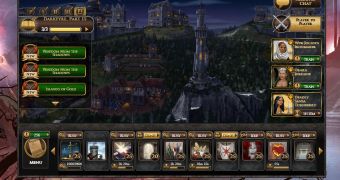This weekend, the third full Alliance versus Alliance phase of Game of Thrones Ascent ends and my group seems poised to win the big prize and set a record that might never be broken, depending on changes made by the developers at Disruptor Beam.
The experience is built on the world created by R.R. Martin and then brought to a larger audience by the Game of Thrones series on HBO, and the studio has done a good job of creating an atmosphere that mixes heroism with dread and strife.
I initially got into Game of Thrones Ascent because of the theme and because I could play it in short bursts, but now I am thoroughly committed because of the way it showed me what teamwork can do in a video game.
Alliance versus Alliance started off as a distraction for me, but soon the leadership of my alliance decided we should focus on it and try to win big.
We performed adequately in the first two phases but nowhere near our potential, mostly because we are acting as independent actors with individual aims and strategies.
Game of Thrones Ascent might be considered a casual title by some gamers, but there was nothing trivial about a process that saw members eliminated, communication channels restructured, and a solid leadership created before the third AvA phase.
Teamwork is a great concept but it needs to be supported by simple orders coming from the top leaders and by easy ways to split off groups and launch special operations.
After almost 30 full days of fighting, I feel a little tired by the constant waves of attacks I send, sometimes abandoning my reading or gaming, but I also feel that I learned something about gaming, about its ability to bring different people together to reach a goal that exists only in the virtual space.

 14 DAY TRIAL //
14 DAY TRIAL //